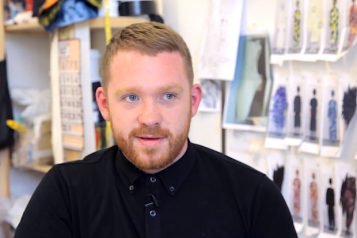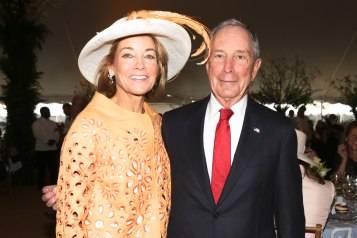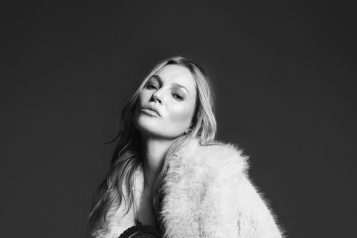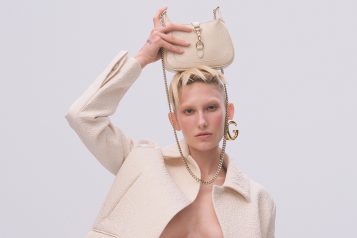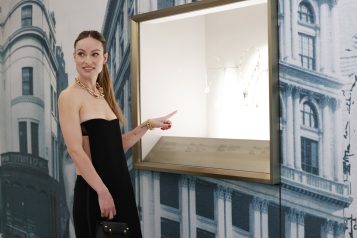
The Adidas Yeezy Supply Season 1 collection, being named to the Times 100, a new album in the works, a three date stint at the Louis Vuitton Foundation, new tracks “Wolves” and “Only One,” countless insightful interviews, and now, an honorary doctorate; amazing considering Kanye West has been an international star since 2004 that 2015 is really the year of Kanye West. West has reformed his public persona enough to let his indisputable talents shine through. As a result, he is getting the respect he deserves as a multi-discinplinary artist. Cementing that notion further is Kanye West’s honorary doctorate given to him by the School of the Art Institute of Chicago.
To celebrate the occasion, Kanye fielded questions from students and other crowd members and waxed philosophical on three of his favorite subjects: art, music and design. But Kanye also took the time to address the culture at large: he expressed empathy for a fellow Chicagoan who lost two friends to gun violence, he talked about classism replacing racism, and he offered opinions on the entrepreneurial spirit as exemplified by the likes of Steve Jobs and Mickey Drexler of J. Crew. Here are some choice quotes from Kanye’s SAIC seminar.
On how being labeled as a “hip-hop artist” has made it easier for Kanye to work with amazing creative people.
“A lot of times I’ve been able to work with the most amazing people on the planet because I wasn’t considered a threat to what they do, because I was just there to be “a hip-hop artist.” So it’s allowed me to work with a [Takashi] Murakami or a [George] Condo or Riccardo Tisci, or Spike Jonze, Spike Lee—all these different fields—that so-called “box” allowed there to be a level above, like a marriage or something, like working with people that are married, obviously these people are willing to be controlled and compromise.
On the street violence plaguing Chicago
“I mean, we could just try. Yeah, I’m not even gonna try to give any politically correct answer that makes it seem like, after I say it, it’s all good—‘cause it’s not all good; it’s f***ed up out here.”
On the process of fashion design
“I think about the way Jony Ive would approach it, the way Steve Jobs would approach it, the way Walt Disney would approach it, the way Howard Hughes would approach it. As opposed to the way fashion had normally been. I’m constantly trying to find my process.I do one million style-ups. A style-up is where you take vintage clothes, you have a like a hundred vintage pieces, and you, one stylist, maybe six stylists, sit there—and I say “stylist” because design is so contained, most designers are extremely arrogant and don’t ask a lot of questions, and then like Jony has 17 designers, and he’s the best designer on the planet.”
On how a $110,000 Le Corbusier lamp was the catalyst influence for the Yeezus record
“Corbusier—I bought this lamp, and it was dumb expensive, it was $110,000. It was inspiring to me. Not just because it was expensive, but more for the fact that it was free when it was first made. And, it cost a lot because it’s a statement now, of class, so these French galleries charge rich people more. The point was, when I’d look at that Corbusier lamp and think: “He made this, and he put this lamp in zoos, so everyone could have it.” It was about everyone having an opportunity to have beauty, to be inspired. ”
On people taking issue with any single artist displaying talent in more than one artistic medium.
“What I thought was the best thing about Steve McQueen winning that Oscar was the fact that he was able to be excellent at two disciplines. Absolutely excellent at two disciplines. And there’s theories about people who are amazing at stuff actually are amazing at other things. And it goes back to my point of, a selfish point, ‘cause I was gonna make it the fact that I’m gonna be a really good clothing designer.”
On the ultimate purpose of creative expression.
I feel, as artists, our responsibility is to the truth. Because how else can history be documented? How else can our time be represented, this time that we have? Who’s gonna stand up and say, as the gentleman said earlier today, how it really is right now? Who’s gonna express that?







